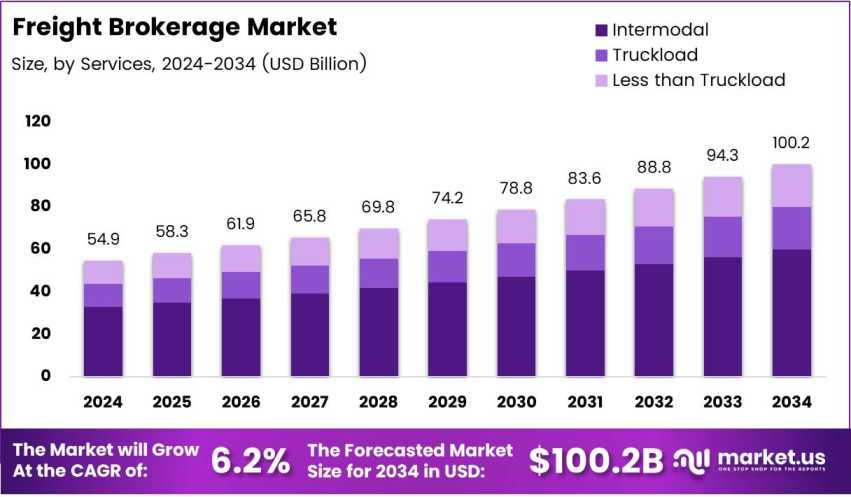Managing Fuel Price Volatility

Freight Brokerage: A Vital Link in Global Logistics
Freight brokerage has become an essential part of today’s supply chain infrastructure. No longer acting as mere intermediaries, brokers now play a strategic role in enabling efficient cargo movement across road, rail, air, and sea. They help businesses match freight with carriers, optimize routes, manage paperwork, and ensure smooth delivery operations.
As supply chains grow more complex and globalized, businesses increasingly rely on freight brokers to bring speed, flexibility, and cost control. From coordinating one-time shipments to managing recurring logistics contracts, brokers add value by simplifying transportation planning and execution.
For more info visit : https://market.us/report/global-freight-brokerage-market/
Technology is Reshaping the Brokerage Landscape
Modern freight brokerage is powered by digital tools. AI-driven load matching, real-time tracking, and predictive analytics have changed how brokers operate. These technologies improve decision-making, streamline communication, and provide greater visibility into every stage of the shipment journey.
Digital platforms now allow clients to book loads, track shipments, and analyze performance from a single dashboard. Automation also reduces manual work, improves accuracy, and cuts down operational costs. As more brokers invest in these systems, digital maturity is becoming a key factor in gaining a competitive edge.
Technology has also enabled brokers to offer value-added services such as freight auditing, route optimization, and sustainability tracking, turning them into comprehensive logistics partners rather than just transactional service providers.
Responding to Market Shifts and Industry Pressures
Despite the opportunities, the brokerage industry faces ongoing challenges. Fluctuating fuel costs, labor shortages, and capacity constraints often impact pricing and service availability. Brokers must remain agile, adapting to changing conditions through strong analytics, flexible partnerships, and proactive planning.
Sustainability is also becoming a major concern. With growing pressure to reduce carbon emissions, brokers are exploring green logistics solutions. These include fuel-efficient routing, consolidated shipments, and offering eco-conscious transportation options. Forward-thinking brokers are already integrating sustainability reporting into their services to support clients with environmental goals.
For more info visit : https://market.us/report/global-freight-brokerage-market/
Growth Across Regions and Modal Diversity
Freight brokerage is expanding across both mature and emerging markets. North America remains a stronghold, but rapid industrial growth and digital adoption in Asia-Pacific, Latin America, and parts of Africa are opening up new opportunities. Brokers that can localize operations and understand regional logistics challenges are well-positioned for growth.
In addition to road freight, today’s brokers offer multimodal solutions that include rail, air, and sea transport. This helps clients manage complex shipments more effectively, reduce costs, and improve delivery times. Offering flexibility across transport modes is now a key part of a broker’s value proposition.
The Future of Brokerage Is Strategic and Integrated
Freight brokerage is no longer just about securing the lowest rate—it’s about building long-term logistics strategies. Clients now expect their brokers to provide tailored solutions, data insights, and ongoing support across their supply chain.
The most successful brokers of the future will be those who invest in digital transformation, focus on customer-centric solutions, and adapt quickly to market dynamics. As logistics continues to evolve, brokers that offer scalable, tech-enabled, and sustainable services will become key partners for businesses navigating global trade.